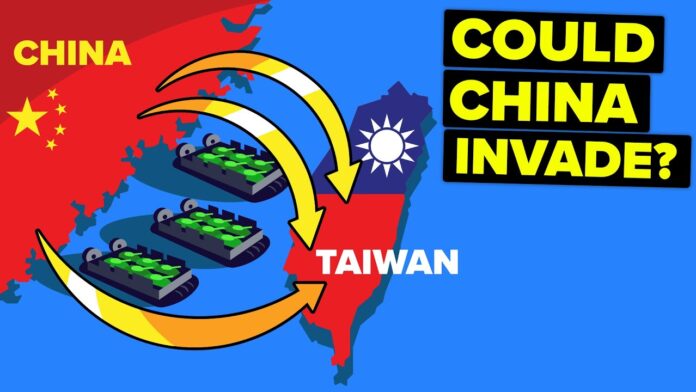The specter of a Chinese invasion of Taiwan has loomed large in geopolitical discussions for years, with tensions escalating and receding in cyclical patterns. The year 2024 was earmarked by many as a potential flashpoint, yet as the calendar turns, the anticipated invasion seems deferred, raising questions about the timeline and feasibility of such an endeavor.
Historical Claims and Strategic Importance
Understanding China’s fervent desire to reclaim Taiwan necessitates a glance at history. Rooted in historical claims dating back to its time as part of mainland China and its strategic significance, Taiwan holds immense value for Beijing. Once called Formosa by the Japanese during their occupation, Taiwan became the sanctuary for Chiang Kai Shek’s fleeing government post-1949, solidifying its status as an independent entity.
Today, Taiwan’s strategic importance transcends historical narratives. Situated strategically in the South China Sea, it commands crucial maritime routes, housing vital industries including semiconductor production, crucial for global technological supply chains. For China, asserting control over Taiwan means consolidating dominance in the region, both economically and militarily.
Territorial Claims and Regional Dynamics
However, the road to annexation is fraught with challenges. While China boasts military superiority over Taiwan, external factors complicate its ambitions. The Philippines, among other Southeast Asian nations, harbors resentment toward China’s expansive territorial claims. With the Philippines aligning with the U.S. and potential Indian involvement looming, a regional conflict could escalate rapidly.
Defense Preparedness and Technological Advancements
Taiwan, though outmatched in sheer military might, isn’t defenseless. Leveraging natural barriers and investing in advanced defense systems, it poses formidable challenges to any potential invader. Moreover, advancements in artificial intelligence add a layer of complexity to traditional warfare, potentially leveling the playing field.
The Deciding Factor: Naval Supremacy
Naval supremacy emerges as the linchpin in this hypothetical conflict. A successful invasion hinges on China’s ability to establish and maintain maritime superiority, overcoming the treacherous Taiwan Strait. Yet, history offers cautionary tales, from Napoleon’s failed attempts to invade Britain to Japan’s defeat at Midway, underscoring the significance of naval power.
Uncertainties and Future Scenarios
As speculation abounds, the future remains uncertain. While China’s military prowess burgeons, the prospect of a full-scale conflict with Taiwan, backed by staunch allies like the U.S. and potentially Japan and India, presents significant risks. Moreover, the dynamics of modern warfare, shaped by technological advancements and geopolitical alliances, defy simplistic predictions.
Conclusion
The question of when China will invade Taiwan remains shrouded in uncertainty. While historical grievances and strategic imperatives fuel Beijing’s aspirations, myriad challenges stand in the way. As the world watches with bated breath, the future of Taiwan hangs in the balance, influenced by a complex interplay of military, technological, and geopolitical factors.


